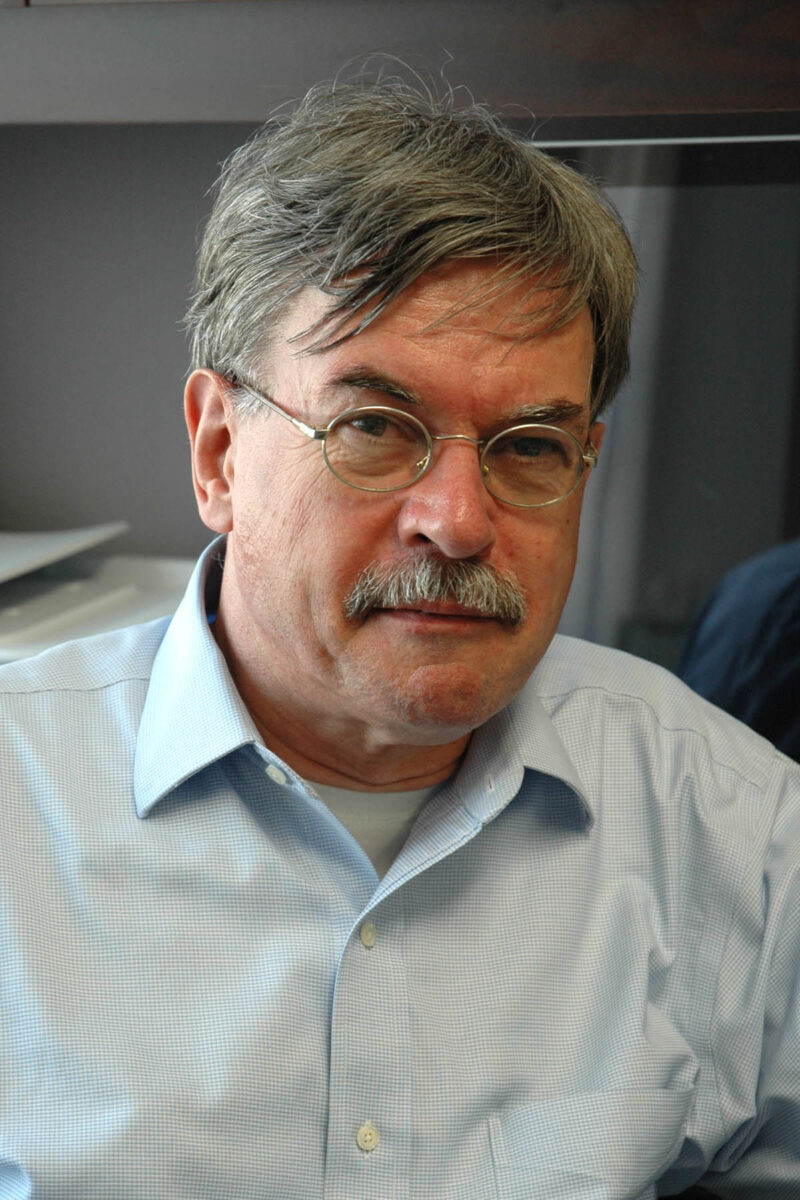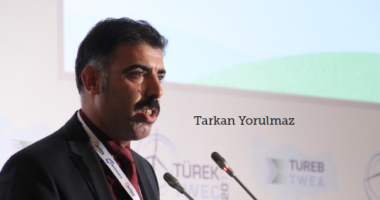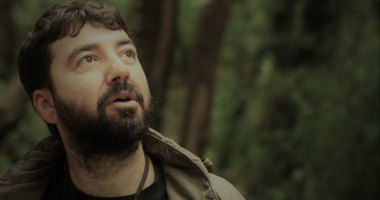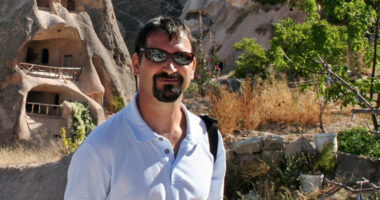Global Bioethics Approach: Off to next stage for philosophy of bioethics education
- At this stage, how do you think the environmental ethics education can respond to the social ecology criticism if you make your evaluation by reviewing the ethics education?
Ethics education can and should respond to the current challenges. I have argued earlier that two diverging views of ethics education can be distinguished: a modest and a broad philosophy. In most of the literature, the view of ethics education is modest. Ethics is introduced in the medical curriculum in order to better assist health professionals. The focus is on facilitating the practice of clinical medicine or research. Ethics teaching is a way of learning skills for analyzing and resolving the ethical dilemmas that will confront health professionals in their future practices. Ethics teaching can help them to be better prepared for dealing with problematic patient cases and make them more confident in decision-making and more effective in communicating with patients, families and colleagues. This view of bioethics education is also pragmatic. One should focus on what is practical and measurable. It is not realistic to expect that ethics education can create moral physicians or make ethical scientists. How can a limited number of courses bring about a change in behavior or character of health professionals? Moral character is already there when students enter the university. The best purpose of bioethics education therefore is teaching skills: medical ethics teaching is not intended to improve the moral character of future doctors. It is not the role of ethics instructors to inculcate virtues such as empathy, honesty and integrity.
It seems however that the philosophy of ethics education is moving towards a broader conception. The focus on identifying and analyzing ethical issues is characteristic for the early stages of bioethics education but now there is movement beyond the traditional model with many alternative models aiming to influence students’ attitudes, behaviors and characters. Apparently, there is growing consensus that the ultimate goal of bioethics education is to produce good health professionals and scientists. In this broader view, ethics education is basically a long-term effort to create virtuous health professionals and scientists. It is moral education aimed at character formation, integrity, and professional virtues. Only in this way bioethics teaching can contribute to enhancing the quality of patient care. Bioethics education was introduced and promoted to counteract dehumanizing and objectifying tendencies in contemporary medicine and health care. It is not just there to facilitate medical decision-making but it should contribute to making medicine more humane. For this reason bioethics education has a broader focus on the humanities, liberal arts, social sciences and philosophy, so that medical activity is located in a wider human context. This broad perspective on bioethics education is endorsed in several ways. For example, the accreditation standards of the American Association of Medical Colleges require that undergraduate students demonstrate scrupulous ethical principles in caring for patients, for example honesty, integrity, and respect. This implies that these ethical principles must be taught and evaluated but also that future physicians must show these principles in their professional behavior. The same approach is taken in the United Kingdom. The majority of British medical schools now state that the aim of ethics teaching is instilling ethical behaviour in medical students. More so, they claim that they are successfully accomplishing this goal. Also the UK Consensus Statement of bioethics educators underlines that ethics teaching should reinforce the aim of medical education: the creation of good doctors. The current emphasis on professionalism reinforces this point of view. Learning rather than transmission of information and knowledge is important, especially the learning of values and attitudes. They constitute an identity which is an intrinsic component of professionalism.
It is remarkable that the need for teaching ethics is re-emphasized every time when professional behavior turns out to be problematic. An example is the case of Harold Shipman, an English doctor who most probably murdered about 250 patients. One of the recommendations of the government investigation report in 2004 was to improve the teaching of ethics. Ethics teaching is regarded as a remedy against lack of virtuous behavior. A similar approach was taken in scientific research. The last two decades have witnessed a cascade of cases of scientific misconduct, scandals with falsified publications, and many ethical problems due to financial conflicts of interests. In the U.S. the National Institutes of Health and the National Science Foundation have required as of January 2010 that graduate and postdoctoral researchers funded by grants must receive education in responsible conduct of research. Ethics education should promote research integrity and research ethics. Apparently, one course of ethics is considered as an effective antidote to social and cultural tendencies that allow and even encourage scientific misconduct. Although it assumes that the aim of ethics teaching is to produce better physicians or researchers, such view of ethics is obviously wrong. Public trust in science cannot be restored with a single bioethics course. Bioethics education is not a medication that can be provided or a remedy that can be injected when the whole body is affected. Bioethics is not like other disciplines contributing to medical education: it is an intrinsic part of medicine itself as a moral enterprise. It is focused on understanding and transmitting the basic values of the profession. This transmission is continuous and not the result of an incidental or supplementary educational intervention. Medical education is a process of socialization, of ‘moral enculturation’, transmitting a distinctive medical morality. This is not a process visible in formal ethics teaching, but a substantial part of the ‘hidden curriculum’. Studies of the hidden curriculum show that it has substantial ethical impact, e.g. loss of idealism, emotional neutralization, acceptance of hierarchy, competition rather than cooperation.
Such philosophy of medical education implies that there is a continuous transmission of values and virtues framing and shaping professional identity. Ethics is not a tool that can be added from the outside but it is already there, intrinsic in the culture in which medical training operates. Formal and explicit bioethics education runs the risk of not only being extraneous to the internal morality of medical education (as a peripheral course) but it can also be antithetical to the values emphasized in the hidden curriculum. These values may make health professionals more cynical but articulating ethical skills will not be a remedy. It should be acknowledged that ethics is permeating medical education, though in an implicit and not articulated way. There is a difference between what is taught and what is learned. Three practical steps will follow. First, bioethics education needs to establish an overall value climate, recognizing that ethics teaching is a responsibility at organizational level. Second, all faculty is involved in ethics education, not merely in the classroom but rather at the bedside and in the laboratory; it is therefore important to teach the teachers. Third, bioethics education is already based on virtues before it even starts to be explicit and formal and before it addresses facts and skills. This answers the often raised question: can virtues be taught? They are continuously taught in the process of professional formation. But one course alone will not do the job. Teaching virtues is an institutional mission.
The two philosophies of bioethics education formulate a different perspective, a broad one aiming at virtuous professionals and a narrow one aiming at ethically skilled practitioners. Both perspectives cannot be isolated from the fundamental question why we do have bioethics education in the first place. If bioethics education was primarily introduced to counter the ‘dehumanizing’ effects of modern science and technology in the context of healthcare and science, reiterating a reduced image of patients, and a focus on the human body and biology, we have to move beyond a purely analytic and cognitive model of education. Otherwise we would merely reinforce the myopic views and problems that necessitated the introduction and expansion of bioethics education in the first place. But at the same time, the impact of bioethics education should not be overestimated. Most ethics formation is taking place throughout the hidden curriculum. The best bioethics education can do is to make this informal education explicit so that the harmful effects of the hidden curriculum can be counteracted. This requires a sustained and long-term effort, creating an educational climate that positively enhances the students’ moral development.
- Finally, from your eyes, how does the near future of the world look like?
Covid-19 is an illustration par excellence of globalization. The virus does not respect national borders or political affiliations. Even when it started in a particular country, it cannot be contained. That highlights the responsibility of countries to be as transparent as possible because the threat is global. Questions need to be raised therefore about the first response to the infection in China, and an independent, global evaluation will be necessary. This is particularly urgent to prevent future pandemics, and not to blame or settle scores. In fact, most countries have enacted inadequate policies so that the whole of humanity has to learn lessons. In almost all countries, policy makers started with denial, disbelief and defensive strategies, underestimating the need for preparedness and prevention.
The pandemic is revealing the deadly face of neoliberalism. This is apparent in the argument that economic activity and productivity are more important than human life. In the United States, more than in Europe, the same people who are opposed to abortion and euthanasia are now in favour of opening up society so that the economy can restart. It is also emerging in the assumption that some populations can be wasted; they are redundant since they do not contribute to economic (re)growth. Elderly and vulnerable persons, especially in nursing homes and prisons, can be left to die; they need to be sacrificed in order to save the economy (like soldiers in a war). Older people can be sacrificed to save the economy.
As a global threat, Covid-19 requires collective and global action. The only international organization to do this is the WHO. It is also the only entity that draws attention to many less developed countries that do not have the expertise or resources to cope with the pandemic. This organization can rightly be criticized but it is clear that it is the prisoner of member states. It cannot act as an independent institution that imposes policies and enforce implementation. Nevertheless, it is an important platform to coordinate activities, to engage in international research, to compare policies, and bring together scholars and researchers. This is exactly what it did. However, its recommendations have been ignored by many countries.
Covid-19 displays for everybody that care is the core of healthcare. Luckily, this is provided by professionals and many others. Managers, economists, policy-makers and bureaucrats, however, do not provide care. For too a long time, they have been in control of healthcare services, focusing primarily on efficiency and cost-savings. The once powerful administrators have now withdrawn in their offices or are sheltering at home, while doctors and nurses do the work. Many health providers are making substantial sacrifices and they are rightly celebrated for this, but they do this because it is the soul of healthcare: taking care for people. In confronting everyday suffering and fatalities, they have to make ethical choices. The pandemic therefore is reversing the balance of power. Rather than managers determining what and how many services will be provided, healthcare professionals rediscover their mission and motivation. This will be the result of a rebalancing of values. Economic and bureaucratic perspectives will be rightly reduced to what they are: instruments to facilitate health and well-being. Healthcare cannot be regarded as a business, and hospitals turned into commercial enterprises. The most important resource in healthcare are care providers and they should be supported and nurtured as much as possible.
One of the most worrying aspects of the pandemic is the lack of a coordinated, global response. The level of incompetence among policy-makers and the incredibly bad leadership among politicians is startling. Even more astounding is the complete absence of the will to learn. Most countries have chosen for an ‘Alleingang’, not taking any lessons from foreign countries. In comparison to other disasters, the pandemic comes in waves; not all parts of the world are affected at the same time, so that there are opportunities for acquiring experience and knowledge of the virus. Every country thinking and acting for itself, is exactly the mentality of nationalistic populism, but it should have been more forcefully criticized by the international community. It is also a self-destructive mentality since the pandemic is a global phenomenon that can only be overcome with global action. What is lacking from a bioethical perspective is solidarity. This is not in the first place a matter of economic support. At a more fundamental level, it expresses the experience of being together in the same ordeal. At this level, solidarity is clearly manifested within neighbourhoods, cities and countries. There are also examples of transnational solidarity, for example the treatment of patients from France and Italy in Germany and Luxemburg.
Nonetheless, the pandemic affirmed that solidarity requires specific arrangements. It is acknowledged that there is a need for essential facilities to produce basic materials, so that countries are no longer dependent on one or two producing countries. In 2009, prior to the H1N1 epidemic, France has one billion face masks in stock. This reserve was not renewed with the argument that the masks could be quickly ordered in China. Approximately 60 to 80% of active ingredients of medication are now produced in China and India. This has reduced production costs but also raised issues of quality. Furthermore, is was already associated with growing shortage of medication before the pandemic. The sanitary dependency of Europe is clearly demonstrated nowadays.
It is argued that the European Union should play a leading role in setting up common programs to produce protecting clothing, face masks, gloves, and tests. It should also create a European network for exchange of scientific information concerning the treatment of Covid-19. Stronger coordination of research is unavoidable in order to have treatments and vaccines. Rather than have competing public and private entities, the EU should bring together the best research teams in its territory. Rather than each country reinventing the wheel, common efforts will be much more productive. It requires rethinking the neoliberal economic ideology that has driven EU decision-making since long, countering tendencies of outsourcing, and relocating essential services and materials. The focus on short-term gains, dividends and efficiency should be abandoned. In an economic perspective, stocks are useless since they do not have immediate financial returns. For public health, as we have learned now, they are essential. The EU should furthermore expand its role in healthcare. This is now the exclusive competency and responsibility of member states. The results are observable in incoherent and different strategies of individual nations. A European pact for health will be necessary, comparable to the community actions in the face of climate change, — the other major global threat.
Global coordination should be reinforced by strengthening the World Health Organization. There is a need for stronger epidemiological surveillance. The concept of One Health should be implemented, intensifying scientific and practical cooperation from the perspective that human, animal and environmental health can no longer be separated. Like in the area of human right, an international sanitary tribunal should be established that can oblige countries to share information and take preventive and remediating action as early as possible. The pandemic will also widen the gap between rich and poor, and exacerbate social disparities. The only global organization to address this issue is the WHO cooperating with other global institutions. The same is true for the need to maintain the food supply which is now also threatened in many countries. Covid-19 disclosed many scandals: unpreparedness, lack of protective equipment and testing. It has disturbed the agendas of nationalism and neoliberalism. What has been normal will no longer be normal. Continuous vigilance will be required, not only against the coronavirus but against other viruses that will emerge in the future. The pandemic will also rebalance private and public interests. It will shift bioethical discourse from emphasis on individual autonomy to engagement with the needs of the community, shared responsibility, vulnerability, and cooperation. Hopefully, it will lead to rethinking our way of life.





